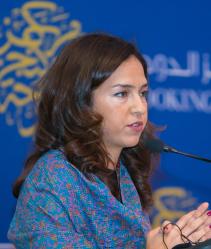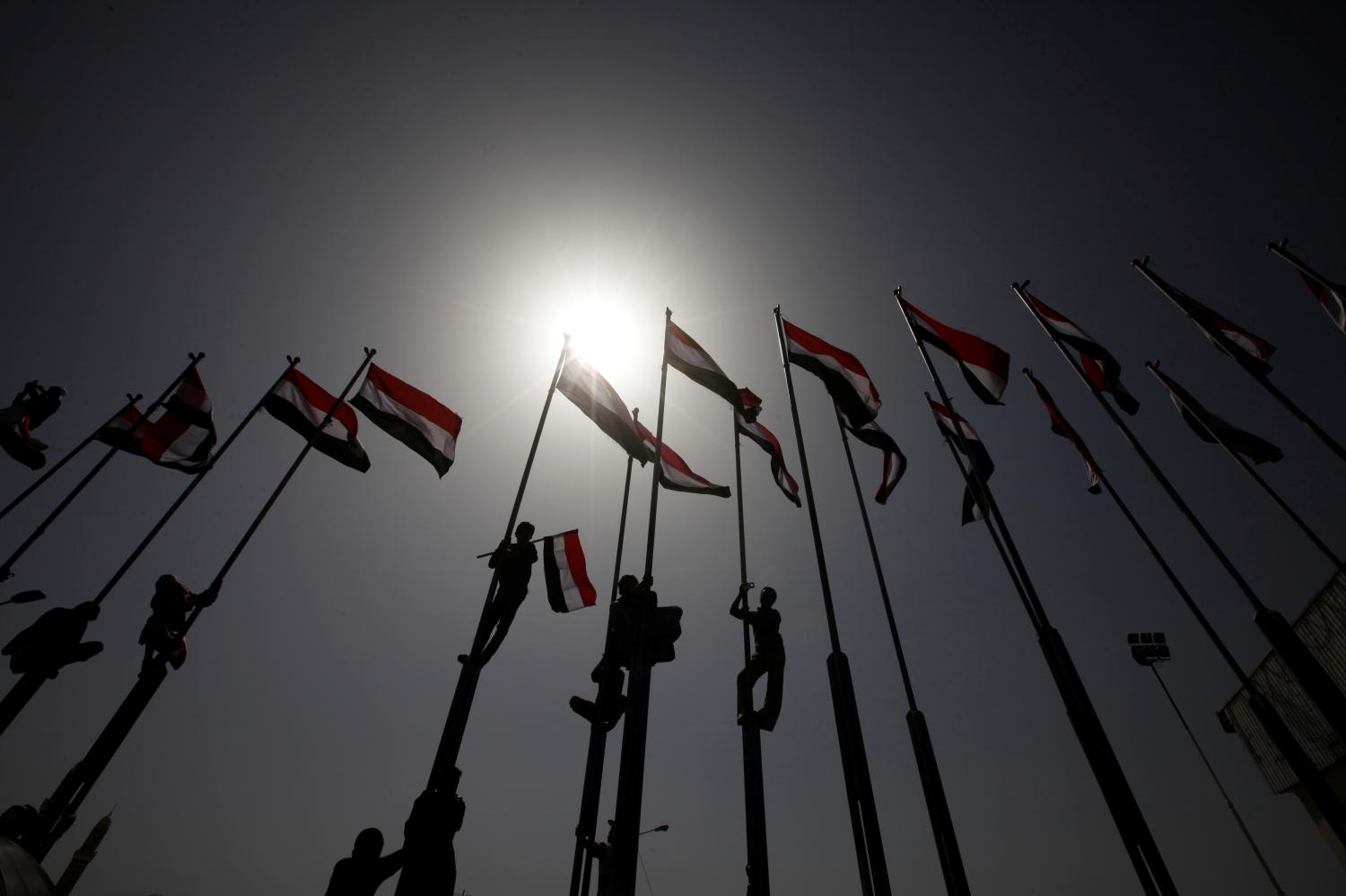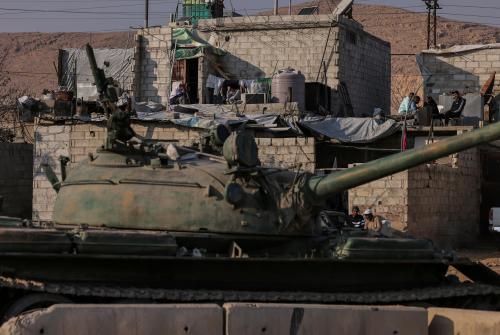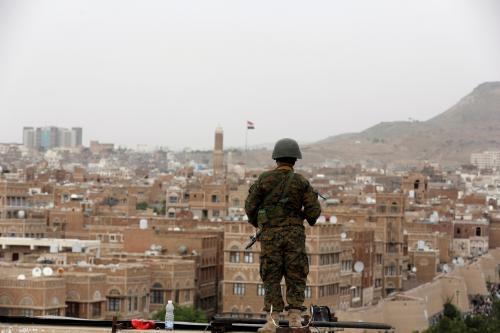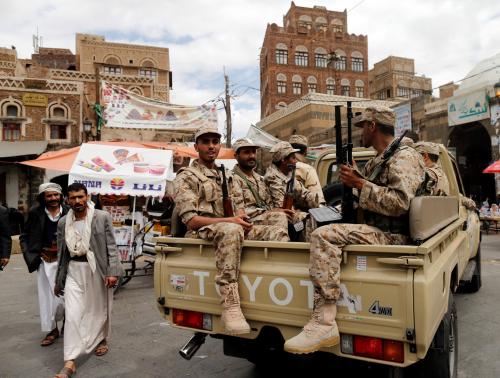Content from the Brookings Doha Center is now archived. In September 2021, after 14 years of impactful partnership, Brookings and the Brookings Doha Center announced that they were ending their affiliation. The Brookings Doha Center is now the Middle East Council on Global Affairs, a separate public policy institution based in Qatar.
Little is known about the Yemeni diaspora’s engagement in recent political developments in Yemen. This group of Yemenis includes professionals from diverse backgrounds who actively engage in efforts to improve the political and economic situation in Yemen. This paper finds that Yemeni diaspora actors, particularly those who have departed from Yemen since 2014, are a valuable, but largely untapped, resource for the international policymaking community. The poor mobilization and coordination among these Yemeni professionals is a major challenge that is inseparable from the polarization in their home country. Nevertheless, they should be key partners in shaping the international and domestic policies that affect them and the situation in Yemen.
This paper examines the efforts of Yemeni professional diaspora members to influence, challenge, and shape policies addressing their country’s political crises. The ability of international policymakers, non-governmental organizations (NGOs), journalists, and researchers to access significant parts of Yemen remains severely limited by the ongoing war. Yemenis outside of Yemen, however, are an immediately accessible and indispensable resource for policymakers, and could help enhance the latter’s impact during the conflict, transitional, and post-conflict periods.
The Yemeni professional diaspora, however, is far from homogenous in its composition and objectives. Diaspora members disagree, for instance, on how best to revive the transitional process in Yemen. Still, they share common frustrations regarding the international community’s engagement with them (or lack thereof) and regarding the conflict in Yemen more broadly. Their overarching concern is that policymakers engage in a superficial, tokenizing manner with Yemenis both inside and outside of Yemen, whether at domestic negotiations or peace talks.
Three principal observations emerge from this paper’s findings, which are largely based on interviews with leading members of the Yemeni professional diaspora. First, the Yemeni diaspora serves a powerful awareness-raising role by unpacking and underscoring the complexities of the local economic, political, and social dynamics of Yemen. Yemeni diaspora members aim to ensure that influential Western policymakers and the media are better informed about the Yemeni context, and have consciously prioritized efforts to counter what they view as a superficial, misguided, and misinformed narrative upon which international actors overwhelmingly base their policies. Secondly, Yemeni diaspora actors have shared their expertise and made their country physically accessible to foreign journalists and scholars. While challenges remain, this expertise and access have nevertheless facilitated the production of better-quality journalism on the situation in Yemen, particularly for Western audiences. Finally, despite deep divisions and aggressive polarization among Yemenis inside and outside of Yemen, the interviewees demonstrated that they agree on a number of policy approaches to help alleviate, or even end, the conflict.
Rather than present policy recommendations for conflict resolution in Yemen, this paper instead foregrounds a largely overlooked set of actors – the Yemeni professional diaspora – whose political engagement continues to be overshadowed by a misinformed and disinterested international community. It is their policy recommendations, informed by locally-based Yemenis and supported by partnerships with international actors, that should be at the center of reclaiming Yemen.
The Brookings Institution is committed to quality, independence, and impact.
We are supported by a diverse array of funders. In line with our values and policies, each Brookings publication represents the sole views of its author(s).
